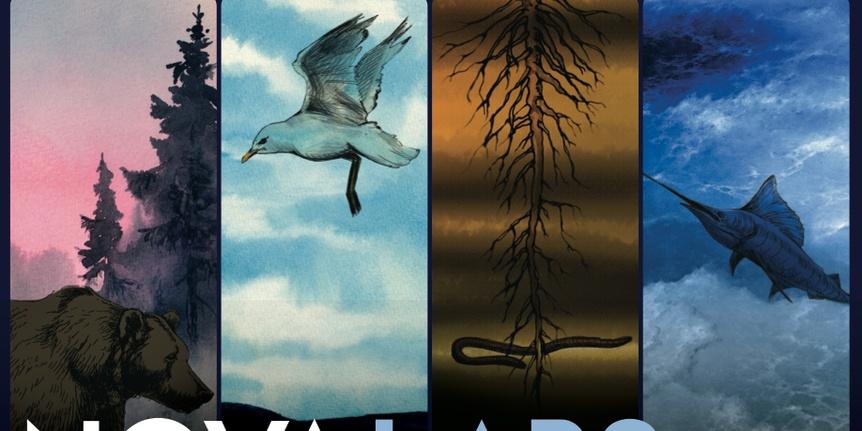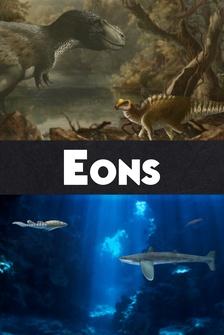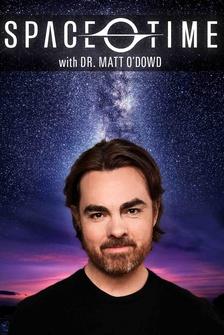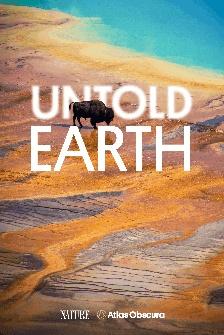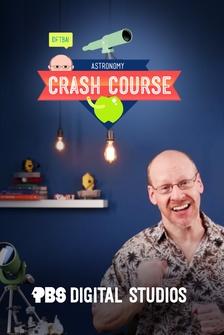(gentle music) - This is a very dynamic area.
We experience earthquakes, wildfires, floods.
There's all kinds of things that happen.
They show us how puny we are in relation to Mother Nature's forces, but we're also very adaptable.
(gentle music) Well, we're on the beach of Kvichak Bay, just a few hundred yards to the northeast of the mouth of the Naknek River.
We experience very large tides here in Bristol Bay, some that approach 25 feet, the high tides.
The permafrost seems to be melting more rapidly in recent years, and that kind of lubricates the subsurface a little bit, and that's contributing to the beach erosion.
If you look right straight down the bluff here, you can kind of see the angle that we are deviating from the vertical as the bluff is backed up, and the next super tide with a storm surge behind it will take that to vertical again.
But you can kind of see the angle that everything is following.
And that tree down there used to be at the top, and it's beginning to slide down.
In my tenure here, over about 50 years, the beach has probably retreated, I would say at least 30 to 40 yards, and maybe even more than that.
It's a situation that's of concern to the planners of the area.
Yeah, it looks like pudding coming down the back.
- [Onlooker] Yep.
- But these are the kind of features, this alluvial fan over here, the local wastewater lagoons, there's concern about how much longer they will be viable in their current location.
The bluffs in front of them are eroding rather precipitously.
And we have no idea really how far, historically, these bluffs have eroded, how much farther offshore they might have been a few hundred years ago.
(gentle music) - Looking out from my house is big flats.
There was three big lakes.
Now it's completely gone.
(gentle music) You could see where sandbar is there now.
That used to be flats like over there, like all the grass, and that's all gone.
This is where we had our skiff shelters for, you, know, it was a little creek right here, right where the water is, that was our channel.
The erosion came up to the bank and this bank used to be about 40 or 50 feet out.
(gentle music) The people moved the church physically away from the bank two times.
The erosion kept on coming.
The third time, they moved it all the way, away from the bank entirely.
In the back of that Russian Orthodox church, we had a cemetery.
There's quite a bit of land, there's a lot of crosses.
We had to get permission to gather the bones and relocate.
The erosion went all the way to the last burial site.
That's how much it eroded and now it's affecting other buildings.
So hoping that our town or village government could come up with something to slow it down.
(gentle music) - Everything was really compact down at the old villages.
It's built like every other village, really close together.
I grew up on that lake, Goldfish Lake, played with small boats, made boats big enough to float in.
It was just our playground.
(gentle music) - I could picture it in my head, the whole village, how it used to be.
We're right on ground zero here in Goldfish Lake.
(gentle music) Old power lines here and probably some sewer lines.
So there was a road that came down, came through the village, and it was just like, you pass through all the houses.
Tide started taking it all away, right before our eyes.
(gentle music) We try to keep all the houses and preserve it as much as possible.
If we didn't take it, it'd be out in the ocean here, but it's all gone.
Eventually the lake drained into the ocean.
- The town eventually moved up towards the airport.
Essentially we have Port Heiden today.
It took decades.
(gentle music) The big things that people talk about is the loss of connection that you have with where you were, and it's a tangible thing, it's real and it has an impact.
And you know, you go to a place for a memory, or you even go into your spot in your head, but if that spot is gone, you can't even replenish that memory.
But I think that's just the way of life on this coast.
It's always been very dynamic.
When you hear the power of the waves, and see the wind, and that's the feeling you get.
(gentle music) (buoyant music) (buoyant music continues)


